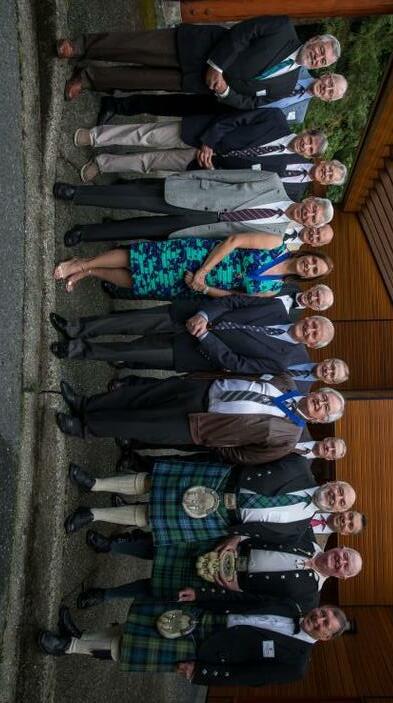
1 minute read
Rewarding Success
Rewarding Success
Having just attended the Senior Prize-giving at the School in June, and been impressed yet again by the success of so many pupils in so many fields of study and other activity I am reminded of the reply made by Rector Robert Gill to the principal toast at the F.P. Club Dinner in 1977 when he said:
Advertisement
“We in the School, staff and pupils, are very conscious of the strong ties which exist between us and the FP Club; we appreciate the genuine interest shown by the Club in what goes on in the School and we are grateful to the Club and to individual Former Pupils for making available to the School prizes and other awards for outstanding achievements, because in these awards I see the encouragement of a spirit of competition. In work, in sport and in personal standards a healthy spirit of competition has proved its worth over the years. Like so many other ways of life once taken for granted, however, competition has become for some an ugly word; there are those who frown on awards for outstanding performance because, they maintain, such awards are divisive; there are even those for whom competitive games are no longer healthy or characterforming. With the element of competition removed, pupils soon lose the incentive to give of their best. In other words there are those in our society who believe that to excel in any aspect of life – whether it be in work or in play – is not to be encouraged. To support mediocrity, and to be satisfied with less than the best, is for some the philosophy of life.
We in the Grammar School do not accept that philosophy. Competition in work, in play, in whatever aspect of life you care to think of, is healthy; it is exciting and stimulating. I encourage our pupils to aim high, to reach for the top – all are capable of excelling in something – and if we strive for success life becomes more meaningful. Boredom and lack of purpose are significant factors in the problem areas of our society. Motivation and healthy competition would help solve some of these problems”.
It is encouraging to know that this continues to be the philosophy of the School, that it stimulates positive reactions from the pupils and is appreciated by their parents.



